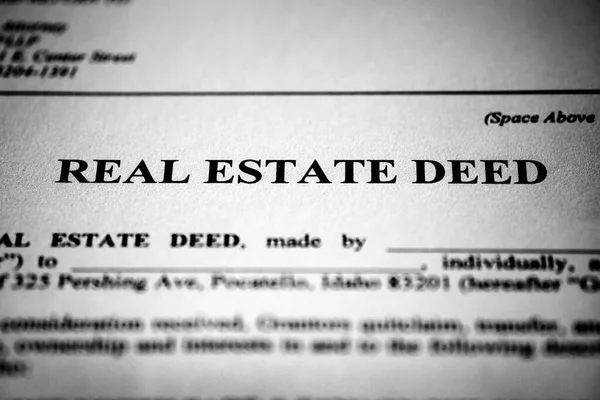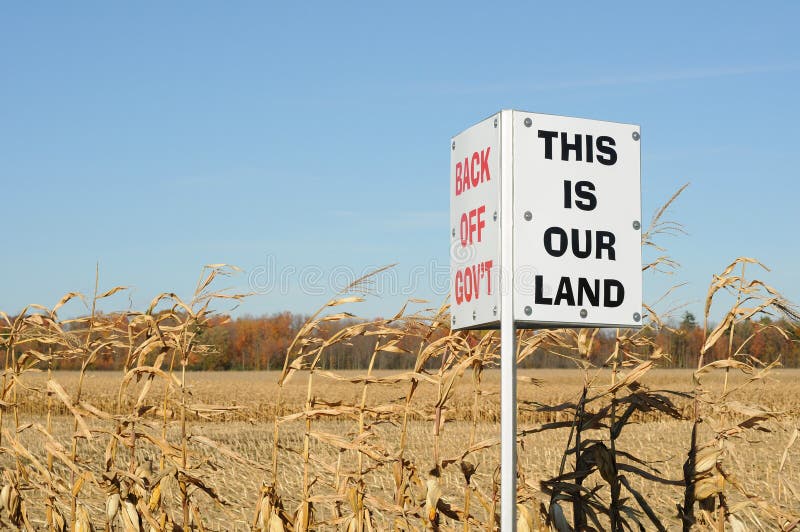Understanding the basics of landownership rights, duties, and legal obligations is essential, especially for first-time land buyers. This knowledge empowers individuals to make informed decisions and safeguards their interests. In this blog post, tailored to Millennials and Gen Z, we will delve into the key aspects of land ownership.
From property rights and legal responsibilities to the transfer of ownership, we will provide a comprehensive overview of what you need to know before investing in land. By the end of this post, you will have a clear understanding of the rights and duties associated with land ownership, equipping you to navigate this significant step with confidence.
Understanding Property Ownership

Understanding property ownership is crucial for anyone looking to enter the real estate market. It involves knowing the legal definitions, types of property, and fundamental rights associated with landownership.
Here, we’ll delve into the legal framework of property ownership and explore the different types of property, providing valuable insights for first-time land buyers.
Legal Definitions of Property Ownership
Property ownership encompasses real property and personal property. Real property refers to land and anything permanently attached to it, such as buildings and natural resources. On the other hand, personal property includes movable items like vehicles, furniture, and jewelry. Distinguishing between real and personal property is essential for understanding ownership rights and legal obligations.
Types of Property
Fee Simple
Fee simple ownership grants the holder complete control over the land, including the right to sell, lease, or pass it on to heirs. This type of ownership offers the most extensive bundle of rights and is often sought after by property buyers looking for autonomy.
Leasehold
Leasehold ownership involves holding the right to use a property for a specific period under the terms of a lease agreement. While leaseholders don’t own the land outright, they have the right to occupy and use it according to the lease terms. This arrangement is common in commercial and residential real estate.
Common Interest Developments
Common interest developments, such as condominiums and planned unit developments (PUDs), involve shared ownership of common areas and facilities within a community. Owners have individual units or lots, along with an interest in the community’s shared spaces, managed through homeowners’ associations.
Understanding the nuances of these property types empowers first-time land buyers to make informed decisions based on their unique preferences and long-term goals.
For more in-depth information on legal property ownership and types, you can refer to Investopedia’s understanding property deeds and 5 common methods of holding real property title.
In conclusion, knowing the legal definitions and types of property is an essential foundation for navigating the complexities of property ownership. Aspiring land buyers can leverage this knowledge to make informed choices and secure their interests in the real estate landscape.
Rights and Responsibilities of Landownership
Owning land comes with a unique set of rights and responsibilities that every landowner should be aware of. These rights and duties not only pertain to the individual property but also extend to the surrounding community and neighboring properties.
It’s essential for first-time land buyers, particularly Millennials and Gen Z, to understand the implications of landownership fully. Let’s delve into the specific rights and duties associated with owning land.

Landowner’s Rights
Landowners have several fundamental rights associated with their property. These include the right to use, transfer, and exclude others from the property.
- Right to Use: As a landowner, you have the right to make use of your property as you see fit, within the boundaries of the law and local regulations.
- Right to Transfer: You have the right to sell or transfer your property to others as you deem appropriate, subject to legal requirements and any existing agreements.
- Right to Exclude: You possess the right to exclude others from entering or using your property without your permission.
Moreover, landowners have the right to receive compensation in the event of eminent domain, where the government acquires private property for public use. Understanding these rights empowers landowners to make informed decisions about their property.
Obligations and Duties
In addition to rights, landownership also entails various legal obligations and responsibilities that must be adhered to.
- Property Maintenance: Landowners are responsible for the upkeep and maintenance of their property, ensuring it is safe and well-maintained in accordance with local regulations.
- Payment of Property Taxes: Property owners are obliged to pay property taxes to the relevant authorities, contributing to local infrastructure, public services, and communal development.
- Adherence to Zoning Regulations: It’s essential for landowners to comply with zoning regulations, which dictate how the property can be used and developed based on the designated zoning area.
Understanding and fulfilling these duties are crucial aspects of responsible landownership, contributing to the overall well-being of the community and the proper functioning of the legal framework.
For further details on the rights and duties of landownership, you may refer to these relevant resources: Adjoining Landowners Rights and Obligations: The Basics, Land Ownership Rights – Property Law, The State of Texas Landowner’s Bill of Rights, The Basics of Land Ownership: What You Need to Know, Mutual Rights, Duties, and Liabilities of Adjoining Landowners.
Transferring Ownership and Legal Obligations

Transferring property ownership involves various methods and legal obligations that both the seller and the buyer need to adhere to. Understanding the intricacies of property transfer is crucial, especially for first-time land buyers.
Let’s delve into the methods of property transfer and the associated legal obligations.
Methods of Property Transfer
The transfer of property ownership can occur through different methods, including sale, gift, or inheritance. When selling a property, a deed is typically used to legally transfer the ownership rights from the seller to the buyer. On the other hand, gifting a property involves voluntarily transferring the ownership rights from the current owner to the recipient without any monetary exchange.
Additionally, inheritance occurs when property is passed down to heirs through a will or intestacy laws. Each method has distinct legal requirements and considerations that must be addressed to ensure a smooth transfer of ownership.
For instance, when transferring property through a sale, parties need to abide by the legal formalities of executing a valid sales contract, conducting title searches, and complying with disclosure requirements. Conversely, gifting property requires adherence to specific gift tax regulations and documentation. In cases of inheritance, understanding the intricacies of probate laws, wills, or trust administration is essential for a seamless transfer of ownership.
It’s imperative for individuals involved in property transfer to seek legal counsel and engage in due diligence to fulfill the legal requirements associated with each transfer method.
Legal Obligations in Property Transfer
Legal obligations play a pivotal role in property transfer, ensuring transparency, clarity, and protection for all parties involved. Title searches are a fundamental aspect of property transfer, as they validate the seller’s legal right to transfer ownership and identify any existing liens or encumbrances on the property.
Additionally, disclosures pertaining to the property’s condition, history, and any material defects must be conveyed to the buyer to facilitate an informed decision-making process.
Throughout the property transfer process, legal professionals, such as real estate attorneys or conveyancers, play a critical role in facilitating a seamless transfer of ownership. They assist in drafting and reviewing legal documents, conducting due diligence, and ensuring compliance with state-specific laws and regulations. Engaging legal professionals can mitigate the risks associated with property transfer and provide comprehensive legal protection for both the seller and the buyer.
Understanding the methods of property transfer and the legal obligations involved is essential for first-time land buyers to navigate the intricacies of real estate transactions confidently. By embracing a proactive approach and seeking professional guidance, individuals can navigate property transfer processes effectively, ultimately securing their rights as property owners.
For more information on transferring property ownership, you can refer to insightful resources such as Transferring Property Ownership to Family, Charity, and More and Legal Ways To Transfer Property.
Remember, understanding the nuances of property transfer empowers individuals to make informed decisions and safeguard their interests in real estate transactions.
Protecting Property Rights
When it comes to being a landowner, protecting property rights is essential. Legal mechanisms and common issues often arise, so it’s important to understand how to navigate these challenges effectively.

Legal Mechanisms for Property Protection
Landowners have access to various legal tools and mechanisms to protect their property rights. Easements, which grant specific rights to others to access or use the property, are common examples of such mechanisms. Additionally, covenants establish agreed-upon rules and restrictions for the use of the land, providing a framework for property protection. Furthermore, land use regulations set by local authorities dictate how the property can be utilized, adding another layer of protection.
It’s crucial for first-time land buyers to familiarize themselves with these legal mechanisms and seek professional guidance to ensure their property rights are safeguarded effectively.
Common Property Rights Issues
Boundary disputes, encroachments, and nuisance claims are among the common issues faced by landowners. Boundary disputes can arise due to unclear property lines, encroachments occur when neighboring properties infringe upon the land, and nuisance claims involve disturbances impacting the enjoyment of the property.
Addressing these issues within the legal framework is vital. Seeking legal counsel and understanding relevant laws can help landowners effectively address these common property rights issues, ensuring a secure and enjoyable ownership experience.
Understanding the legal mechanisms available and being prepared to tackle common property rights issues empowers first-time land buyers to protect their ownership rights effectively.
Understanding the basics of landownership rights, duties, and legal obligations is crucial for first-time land buyers. By grasping the significance of property ownership, individuals can navigate the complexities of real estate transactions with confidence.
Key points discussed in this blog post have highlighted the rights and responsibilities associated with landownership. This knowledge equips millennials and Gen Z first-time land buyers to make informed decisions and protect their interests when investing in property.
It’s essential to encourage further exploration of the topic and emphasize the importance of seeking professional advice when navigating property ownership. Through continued learning and expert guidance, individuals can approach landownership with clarity and foresight, ensuring a secure and rewarding investment in real estate.
For more in-depth insights and legal guidance, consider reaching out to professional real estate advisors and legal experts who can provide tailored support for your specific landownership endeavors.
Contact Us
We would love to hear from you! Please fill out this form and we will get in touch with you shortly.


